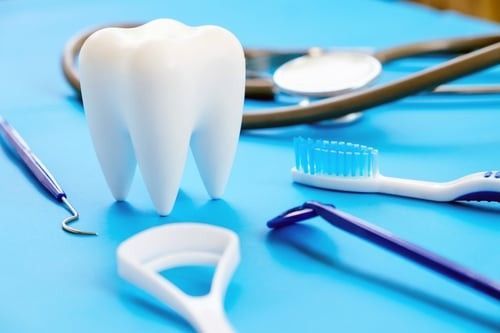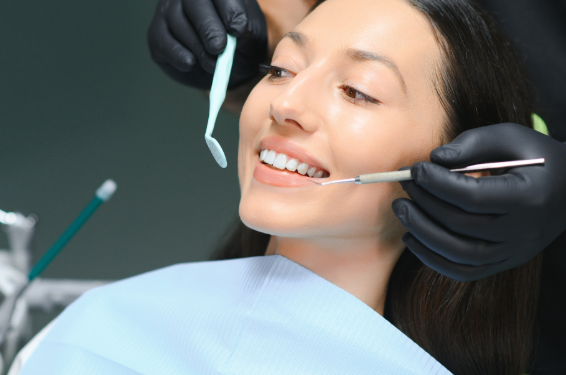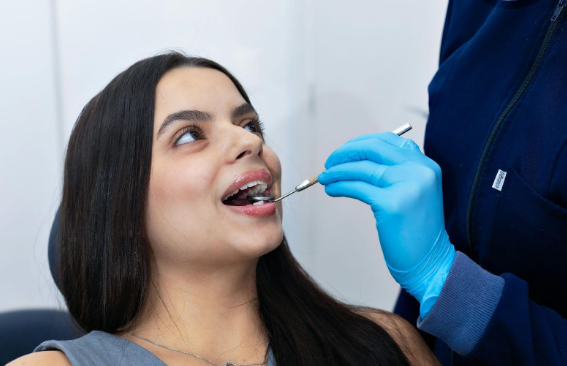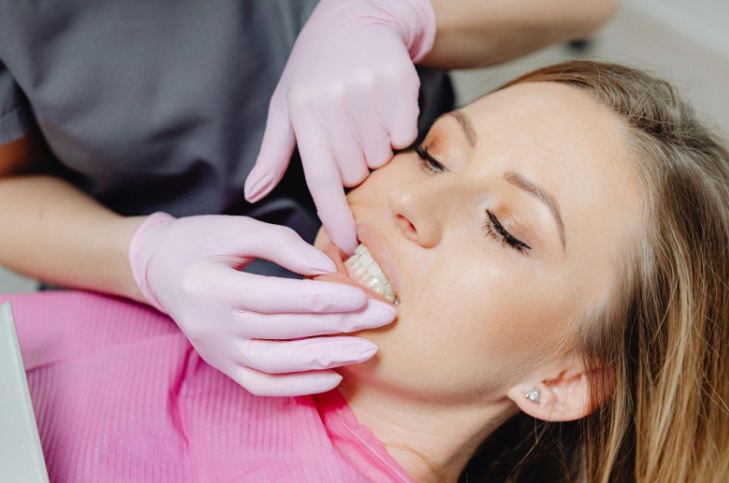Why Should You Get Screened for Oral Cancer?
Why Should You Get Screened for Oral Cancer?

Oral cancer is a type of cancer that forms in the tissues of the mouth or throat. Oral cancer screening is a process used to look for signs of cancer in the mouth or throat. The goal of oral cancer screening is to find cancer early when it is most likely to be treated successfully.
This can be done by a dentist or other health care professional. They will look for any changes in the mouth, such as red or white patches, sores, or lumps. If anything suspicious is found, a biopsy may be done to check for cancer cells.
Reasons Why Oral Cancer Screening Is Important
Oral cancer screening is important because it can help to detect cancer at an early stage when it is most treatable. The American Dental Association (ADA) recommends that by scheduling a regular dental visit every six months, new problems can be detected early on, which helps to drastically reduce the cost of care overall.
Oral cancer screening can also help to identify risk factors for cancer, so that steps can be taken to reduce the risk of developing cancer.
Limitations of Oral Cancer Screening
Oral cancer screening may seem like a simple and easy solution to cancer-prevention, but there are some aspects of it that could potentially compromise its effectiveness. Although oral cancer screening is important in terms of detection, it comes with certain limitations that may dilute its positive impact.
Additional Test Requirements
While the disease is usually in its early stages, it can be detected early on with a simple test. While this is a key factor to oral cancer screening, there are many drawbacks. Additional test requirements may hinder the ability of the patients to receive treatment quickly. Oral cancer screening may not be completely efficient, meaning it can miss some cases of oral cancer that could develop complications later. But it is an evolving technique and is the best preventive measure we have at this point.
Oral Cancer Screening Dye
A dye test is a screening tool used to detect oral cancer. A small amount of dye is placed on the tongue and inside the cheek. The dye stains any abnormal areas, which can then be examined more closely. Dye tests are quick and easy to perform, and they can be done in a dentist’s office. They are generally safe, but some people may experience minor side effects, such as temporary staining of the teeth or tongue. Dye tests are just one of many tools that can be used to screen for oral cancer. Other tests, such as oral examinations and X-rays, may also be used.
Oral Cancer Screening Light
Oral cancer screening light tests are quick and painless. A dentist or oral health care professional uses a special light to look for changes in the tissues of your mouth, tongue, and throat that could indicate cancer. The light is usually passed over your teeth and gums, tongue, and the roof and floor of your mouth. If any suspicious areas are found, a biopsy (tissue sample) may be taken for to test for malignant cells.
Not Completely Efficient in Detecting Cancer
Oral cancer screening tests can be used to help detect oral tumors, but they are not always able to find every cancerous cell. In fact, the American Cancer Society estimates that oral cancer screening tests can only identify up to 75% of oral cancers. Another issue with oral cancer screening tests is that disease-free patients whose tests came back negative still have a 1-in-50 chance of developing oral cancer during their lifetime.
Not a Life-saving Procedure
Although oral cancer screening doesn’t directly save lives, it certainly aids in early detection. Additionally, screening doesn't eliminate the need for patients to go through other methods of detecting this disease if they at risk.
Symptoms of Oral Cancer Screening
Oral cancer lesions are most often found on the lips and tongue, but can also form in the soft palate, floor of the mouth, and gums that surround the teeth. Most oral cancers are caused by repeated exposure to tobacco and alcohol. It's important to have regular exams by a dentist or doctor to check for signs of oral cancer. The following are a few of the most typical symptoms:
Patches or Lesions in the Mouth
This could be due to leukoplakia, which is a precursor to oral cancer, or other precancerous growths in the mouth that may indicate early signs of cancer.
Lump and Pain in Throat
If you feel a lump in your throat or have difficulty swallowing, there could be something blocking one of your salivary glands.
Bleeding
Any bleeding that doesn't stop within 5 minutes should be taken as a warning sign of oral cancer; if you experience bleeding from your mouth, contact your doctor right away.
Voice Change
This could be caused by laryngeal papillomatosis, and if you’ve been experiencing a harsh/coarse voice for a long period of time it is the sign that you might have cancer.
Preparation for Oral Cancer Screening
There are a few things you can do to prepare for an oral cancer screening. First, brush and floss your teeth thoroughly. This will help to remove any food or plaque that could potentially interfere with the screening process. Next, avoid eating or drinking for at least 30 minutes before the screening. This will help to ensure that your mouth is as clean as possible. Finally, be sure to wear loose, comfortable clothing. This will help you to relax during the screening and make it easier for the dentist to access your mouth. Also, there are no specific requirements or preparations that are needed for the screening process.
Results of Oral Cancer Screening
Early detection is crucial to fighting oral cancer, as the earlier it is caught, the better your chances of survival are.
Regular Visits
According to the Oral Cancer Foundation, regular oral cancer screenings are important for early detection of the disease. Screenings can help identify precancerous lesions or cancerous tumors in the mouth, which can then be treated appropriately. Prompt treatment of oral cancer is essential for the best possible outcome.
Biopsy
Biopsy is the most common and most reliable method for diagnosing oral cancer. A small sample of tissue is taken from the suspicious area and examined under a microscope. If cancer cells are present, the biopsy can help determine the type and stage of the cancer.
Summing It Up
Oral cancer has the ability to save lives and help patients prevent the spread of oral cancer into their bodies. So, if you think any of these symptoms are present in your mouth, it is better to contact a doctor and seek medical help. Contact Patriot Family Dental for oral cancer screening and evolve out as a winner. These simple steps can help prevent oral diseases and keep your smile healthy and bright!











